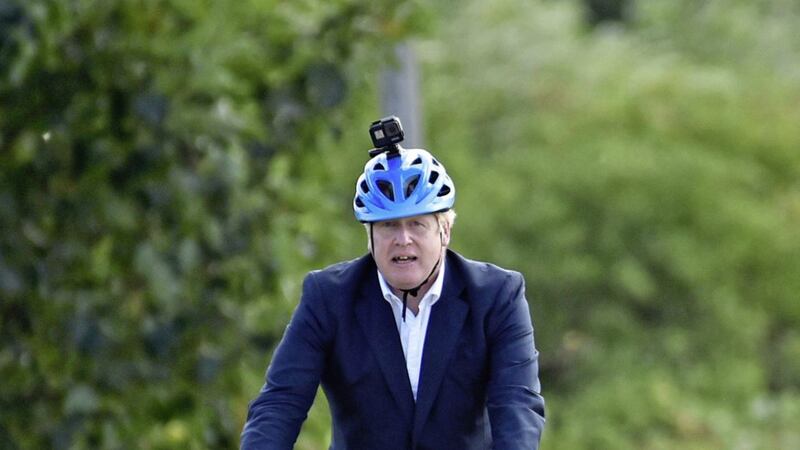SO IT’S déjà vu all over again. Another day, another campaign to get the nation to lose the excess weight. This time it has the added threat of coronavirus being more deadly to the lardies… us lardies, I should say. I too have been fighting a losing battle with overweight for most of my adult life.
There’s plenty of evidence of the scale of the problem. Almost two thirds of adults in the UK are overweight, one in three children leave primary school overweight or obese and obesity-related illnesses cost the NHS £6 billion a year.
So now doctors are going to prescribe cycling and membership of Weightwatchers. Restaurants will be asked to fess up to the calories on their menus while advertising of junk food will be restricted and it’ll be an end to buy one, get one free offers on sugary, salty or fat laden foods.
It all feels like something Jamie Oliver was banging on about a decade ago when he waged a war on turkey twizzlers and unhealthy school dinners and I fear it could be as doomed to failure as most diets. And I have sampled plenty; from the grapefruit diet, cabbage soup and, of course, the infamous Atkins, which had me cutting out carbs and eating meat on a par with Henry VIII.
Slimming classes have a better success rate. Though at one I attended, a woman in the queue for the scales ahead of me carefully removed her earrings first. “You never know,” she told me.
Another woman got a round of applause for shedding four pounds in a week – until she let the class into her secret: “I went back on the fegs.”
Every thin person will be scratching their heads and saying… it’s not rocket science... move more and eat less, is the only answer. If it was really that easy there wouldn’t be so many fat people around, would there? The truth is more complicated.
And if cycling is part of the answer then there needs to be a big change to public transport strategies. My cyclist husband points out that for longer journeys you can’t take a bicycle on a train before 9.30am and on an Ulsterbus it’s at the discretion of the driver. There are also not enough cycle lanes and too few places to tie your bike up. That all needs to change.
And while we’re dealing with weighty matters, maybe future presidential campaigns should start with a weigh-in as a new study has found the most corrupt countries in the post-Soviet world tend to have the most overweight politicians.
The research by Pavlo Blavatskyy of the University of Montpellier in France examined photos and the estimated BMI of 300 cabinet ministers from the 15 post-Soviet republics in 2017 and found a correlation between their weight and levels of perceived corruption.
The countries conventionally rated least corrupt are Estonia, Latvia, Lithuania and Georgia where ministers had the lowest BMI and the conventionally most corrupt are Turkmenistan, Tajikstan and Uzbekistan whose politicians were fleshier. Fat cats indeed.
* * *
I ENJOYED the first part of the latest Sunday night BBC drama A Suitable Boy. With a sumptuous post-colonial Indian backdrop and all the parts played by Indian actors, it had a fresh, authentic feel, and was a far cry from seeing white actors “browning up” with the excuse that they are better box office.
But do we have to go the whole hog and ignore race and gender altogether? Was I the only listener to feel a bit discomfited by a recent Radio Four drama which had the male French role, Dr Rieux, in Albert Camus’ La Peste, transformed into a woman with a Jamaican accent?
I found it distracting and felt it weakened the sense of the drama as an allegory of the Nazi occupation of France. But what do I know?
* * *
THERE’S an online petition launched to oppose discrimination against women called Karen. Apparently that name has become a shorthand term of abuse, suggesting a Karen is an aggressive, judgmental woman who is rude, quick to complain, often racist and invariably white and middle-aged.
It became popular during the early Black Lives Matter protests in the US and has now crossed the Atlantic where it’s been used to label JK Rowling because she has offended the social media ranters by suggesting young gay people were being shunted towards hormones and transgender surgery.
As the sister of a Karen, and one who worked with many Karens, I find this terminology to be cheap, misogynistic and ultimately racist. Leave it out.








